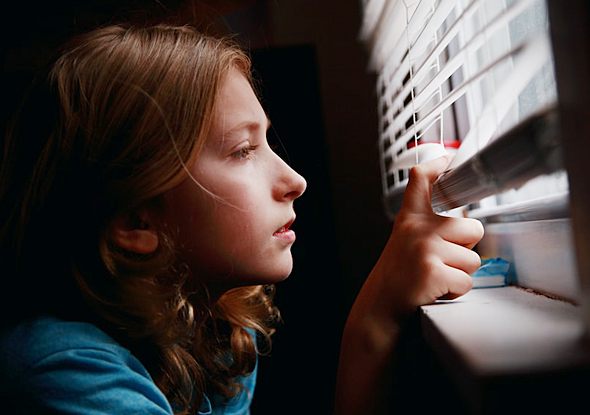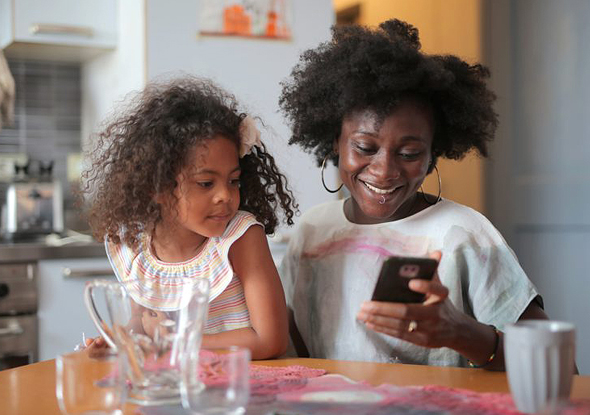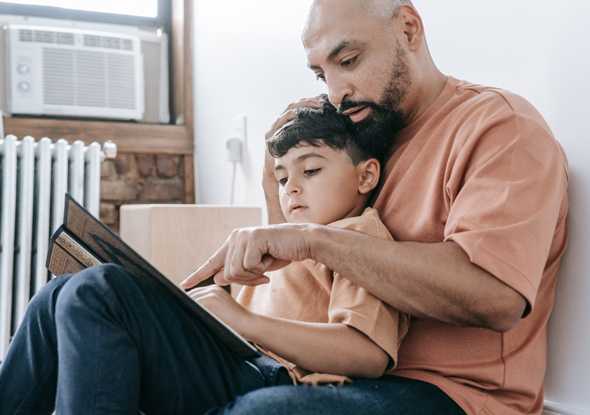Shared Parenting 101 – The basics

- This blog contains affiliate links, which we may receive a commission for purchases. The decision is yours, whether or not you decide to buy.
When a relationship ends in separation or divorce, we need to deal with emotional pain and a pressing need to rebuild lives as well as the inevitable administrative matters that need to be resolved, managed and disentangled.
Where the relationship has brought kids into the world it is the arrangements for these that will likely be the primary focus.
Accepting that even the most amicable splits will still encompass disagreement and significant differences of opinion between the couple, the arrangements that emerge rarely best serve the needs of the children. Contentious custody arrangements arise, often decreed by courts where informal communication channels have broken down.
Typically, one parent loses the majority of their contact with the children, missing out on the benefits and rewards of playing a significant part in their kids’ lives while the other is required to be a full-time single parent with nobody to share the burden of responsibility or the joy.
An alternative to this can be established if both parents are keen to preserve their input into the lives of their kids and are able to put the interests of the kids to the fore, whilst putting aside their differences.
This is to establish a shared parenting arrangement whereby the parents agree that they both wish to play a part in the long-term upbringing of their kids and establish a custody arrangement that is structured as far as possible around a 50-50 split of the parenting responsibility and custody.
It is just this sort of arrangement that my ex-wife and I put in place in 2007 after splitting up and which we’ve been running successfully for the benefit of our two daughters ever since. I’ve summarized below 5 ‘top tips’ that have been formulated from lessons learned over the years (believe me there have been lots more of these).
There are numerous other tips, lessons and critical success factors that are vital to the set-up and maintenance of such a structure but hopefully these first five will serve as useful prompts for you to determine if this arrangement may work for you (and more importantly for your kids!)
Everything must be driven by what is in the best interests of the children
The key consideration in shared-parenting both when you set it up and in living with it is whether it is driven by what is in the best interests of the kids.
At the outset it may be that one or other parent is simply not fit or able to share the upbringing on a 50/50 basis (for reasons ranging from capability, suitability or just lack of desire or inherent ability).
Whilst you may foresee blockers such as work, finance and logistical concerns, I contend that these can be worked around.
I have managed to maintain and build a successful career working full time, often with travel around the country but it has only been as a result of managing these demands actively that has made my roles as a parent and a professional work in harmony; this is a good example of how the interests of my kids has been put to the fore in consideration of how I live my life.
‘Sharing’ means sharing everything 50/50 (or as close as possible)
You must keep things as close to equal as they can be for all involved. Assuming that the child’s interests are consideration number 1, an arrangement that is going to be enduring and comfortable for all involved must require equal responsibility to be taken and commitment to be invested by both parents.
Financial arrangements may not be quite so simple to disentangle as the two parents may be at differing stages in their careers. Whilst each fulfilling 50% of the parenting there may still need to be some financial support from one parent to the other.
Nonetheless, the shared- parenting structure puts things on a more equitable footing for the future and allows ongoing child-related expenditures (of which there are many as they grow up, believe me) to be balanced and shared fairly and transparently.
Whilst being fairer to both parents this also helps the kids to see their parents as equal contributors to their upbringing both financially but also emotionally.
Communication is key
In the establishment and ongoing maintenance of shared-parenting, effective, regular and open communication between you and your ex is vital. As with any family there will be matters ranging in seriousness and complexity that require joint input and discussion.
Whether a conversation over sports clubs or hobbies, joint attendance at a school parents evening or arrangements for school holidays, a means of effective communication to discuss these matters is essential if you are truly going to be able to manage them effectively.
Whether this is done via a 10 minute chat once a week when the kids transition from one parent to the other, or a more formal monthly catch up over a coffee it is important to earmark time when topics relating to your kids can be discussed.
This becomes even more significant when one or other parent enters into a new relationship. The shared-parenting structure and its inherent need for regular communication between exes needs to be understood, accepted and respected by new partners.
In a trusting and honest relationship that accepts your role in a shared-parenting arrangement then future partners should really have no reason to feel unwarranted jealousy.
Another useful by-product of this is that it demonstrates to your kids that their parents are sensible adults who can communicate fairly and openly in an adult fashion.
Accept that there will be differences
By its very nature shared parenting demands a reasonably close relationship to be preserved between you and your ex, albeit one that should be constrained to being parents of your kids.
There will be inherent differences of opinion on matters relating to parenting and also that may hang over from your time as a couple (there must of course be reasons why you parted in the first place!).
What is important to acknowledge is that you have taken a bold and admirable decision jointly to function as an effective if non-traditional parenting team, and this is to be applauded.
You will find that differences that were present in your relationship pervade and perhaps new ones emerge; parenting styles, attitudes to punishment and reward, expectations of behaviour and routines around meals and bedtimes for example will be subject to the preferences of the parent of the week, and the reality will be that the kids may have to get used to two sets of rules and structures.
What should come through for the kids is that the two different ways of living are underpinned by a joint ethos, priorities for putting their interests at the fore and reinforcement of core values that remain significant to you all as a family.
Don’t get upset about the fact that your ex may be more relaxed about bed-times and table manners if you know that they share your commitment to make the kids feel loved, place equal value as you on good manners and encourage diligence over school work.
Allow it to work for you
The core principle of shared parenting is that you are prioritising the kids’ needs and building a post-divorce structure around them to preserve the input of both parents.
A convenient by-product of this over traditional separated families is that it can allow both parents equal (or more equal) kids-free time within which to re-build their lives as an individual.
As acrimony and punitive financial settlements can often be avoided too it also allows for a potentially more even balance of quality of life for both parents and allows each of them to be perceived as influences to the good in the eyes of the children.
Extended families and friends will doubtless also admire you for having put the kids first in spite of your differences. You should enjoy and embrace these side-effects rather than feel guilty in any way about them, or give any credence to things that the inevitable naysayers will voice.
In establishing shared-parenting for your kids you are demonstrating that you put their interests to the fore whilst also affording yourself respect and recognising that you need to re-build your life post-divorce as well.
These lessons are really just the proverbial ‘tip of the iceberg’ but hopefully give some insight into considerations that need to be made regarding shared-parenting.
The key thing to emphasize is that shared-parenting must first and foremost be shaped around the needs and interests of your kids.
If this critical consideration underpins each and every decision (up to and including whether sharing parenting is really viable or in their best interests at the outset) then you can honestly say that you are doing your best for your kids at all points.
Divorce and separation is an inherently upsetting and disruptive process for all involved, and whilst in numerous instances there may be significant events that lead to it happening, not every divorce needs to lead to one or other parent losing their place in the lives of the kids of the relationship.
Sharing parenting 50-50 may not be viable or the best option for kids of all divorcing relationships, but it should always be considered where both parents are willing and able to service the arrangement.
Like all families (divorced or not) the approach taken to parenting will always need to evolve over the years. As long as the changes are in the best interests of the kids, you have nothing to fear and everything to gain.
Toby Hazlewood is an author, project manager, father, husband and cycling enthusiast. His book“Shared-Parenting: Successfully sharing custody of children 50-50 in separated relationships” is available on Amazon and provides advice and guidance on how separated families can share parenting for the benefit of parents and kids alike. It is based on his raising of his two daughters in such an arrangement for the last 10 years
You may also like
Parenting books
Buy now from Amazon
Podcast
If you’re looking for some straight-up, positive advice on topics that affect your daily life, then check out The Sue Atkins Parenting Show. Each week Sue bare will discuss every possible aspect of your parenting challenges, from weaning to whining, boundaries round technology to stroppy teens. You’ll get practical tips, techniques and advice that really work- and it’s all totally free.
Articles
- 5 Ways To Parent With A Narcissist
- How To Be Great Parents Through Separation And Beyond
- Divorce From A Child's Perspective
Videos
Practical advice and tips from professionals on what to do with issues and challenges around divorce from parenting to finance.
Events
Practical tips & advice designed to help people going through divorce, whether online or in person.
Useful links
Here's a selection of organistaioins from parenting to finance to help you with your divorce.
Parenting professionals
Related Posts
-

Successful Co-Parenting: 4 Essential Strategies For Harmony And Unity
-

How Kids Feel About Their Parents' Separation: Impact, Signs, and Coping
-

5 Parenting Habits After Divorce: Tips For Supporting Children In The UK | Resources & Guidance
-

5 Ways Divorced Parents Can Manage Scheduling Appointments With Children
-

5 Things To Avoid With Kids During Divorce

.jpg)

.jpg)



.jpg)

